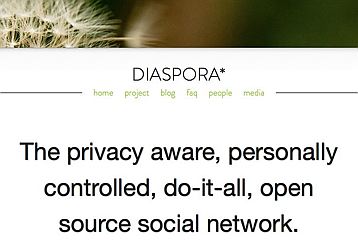Trust is two-way
Failing trust in institutions – business, government, charity and the media – is the climate change that marketing operates in. There are overall blips (rainy summers, warm winters), but the overall trend is only going one way, and it’s not good.
So it’s no surprise that everywhere we look, brands are trying hard to build trust. Some are being more transparent, for instance by publishing more data and evidence. Although you have to question whether anyone really wants more information, or indeed trusts it in a post-truth world.
Others are attempting to be more human, though this largely amounts to using less obvious models in their ads and having the occasional snarky pop at a competitor on Twitter.
For others, brand purpose is a more strategic shift – building the brand around issues and causes that staff, customers and stakeholders care about. (Although it can also mean just making award-winning ads about how we should all be nicer to each other).
The biggest shift is yet to come
But the one single, most effective shift that brands could make in rebuilding trust is the one that they find most counter-intuitive.
It’s based on the most blindingly simple observation from every day life – which is that we trust those who trust us. It’s two way. Reciprocal.
(On a superficial level, disrupter brands like Uber and AirBnB have built this observation into their business model – it’s why hosts and drivers rate guests and passengers).
So it’s a crying shame that the one thing that could make the biggest difference, is the last thing most organisations are prepared to do. And that’s to trust their customers, supporters, employees and citizens first.
According to the School of Life, this is one of the reasons why advertising has ended up being so intrusive. As brands, we don’t trust consumers to make the right choices. We don’t ask them what they need, which means we focus on making products that suit us, not them. The result is that we resort to pestering them like a six-year old (rather than talking to them like adults). Repetition and intrusion, not dialogue and conversation, becomes the norm.
This is an issue for charities too. For decades the traditional model of fundraising has been built on trust flowing in one direction only – from the supporter to the charity. Charities own the programme delivery, the relationship with beneficiaries, the expertise, the impact. So traditional fundraising assumes trust: we do; you give. But charities have rarely trusted supporters to make the right choices, ending up with a fundraising model which values only unrestricted, committed support; and relies on hard-sell, tactical persuasion that infantilises the public.
No wonder crowdfunding is on the rise – a model that gives individuals almost complete control, trusting them to make their own decisions about where to spend their money and make their impact.
Who’s building trust by giving it?
There are some examples of organisations succeeding by giving trust freely to users, customers and supporters. They’re few and far between, but they’re the vanguard of a growing movement. And mostly, their success is blindingly obvious.
WeTransfer refused to harvest users’ data, and trusted that they’d value a useful, beautiful experience. They now dominate the file-transfer marketplace.
Brewdog have built their brand by entrusting their growth to punk investors who own equity, choose new beers, and now run their charitable foundation.
Monzo had one of the most successful crowdfunded launches ever. They’ve built their product by asking customers what they need. And they’re massively oversubscribed for new account requests.
In the charity world, we’ve just run Christian Aid’s first Holy Hack – a chance for engaged young Christians to have a say in how Christian Aid Week (a 50-year old institution) should operate in the future. Signing people up wasn’t hard – in fact we had a waiting list. (People are ready to be trusted, it seems. If only we’d give them the chance.)
And the recent Untapped appeal for WaterAid was built on trust – inviting people to be part of a story rather than bludgeoning them with asks. Raising over £8m in matched funds, it’s one of WaterAid’s most successful ever.
Advertisement
Deeds not words
In short, trust is in decline and transparency isn’t working. Better, more honest and human communication is a start. But it’s actions that will make the difference.
The challenge is that this involves far deeper-rooted change than most brands, locked into quarterly reporting, monthly sales targets and 30-year old RoI models, are able or willing to embrace. It means changing culture, language, targets and models.
At stake is the chance to build what Jeremy Heimans has called the ‘Participation Premium’ – the chance to build a sense of ownership and belief into brands that is far deeper than loyalty or even trust.
If trust really is two way, we have to find ways to prove that we trust the ideas, insights, values and needs of our audiences.
Do you? Really?
Now prove it.
Reuben Turner is Creative Partner at GOOD Agency.
Main image: ‘Trust me’ by Tracey Emin (from Crisis art exhibition, 2013)





